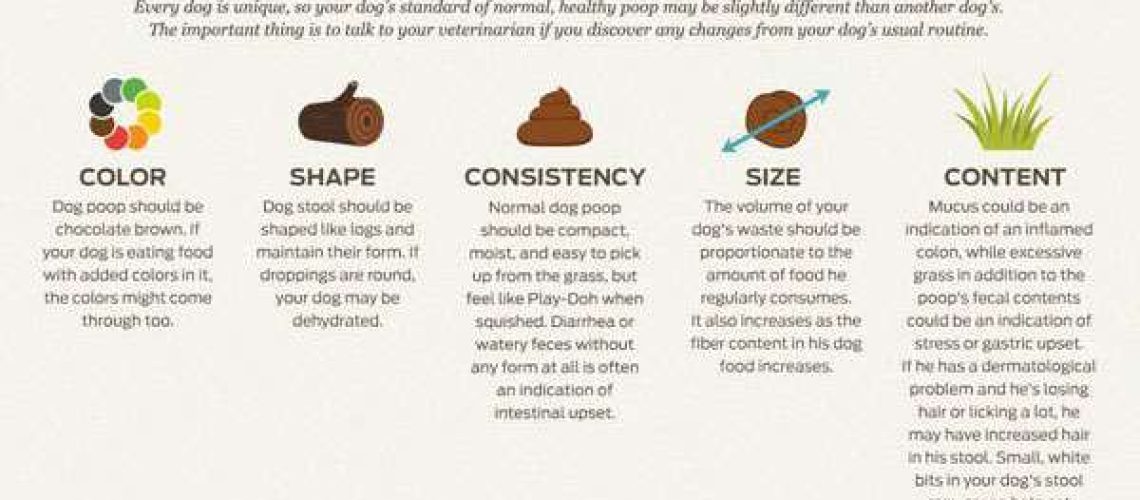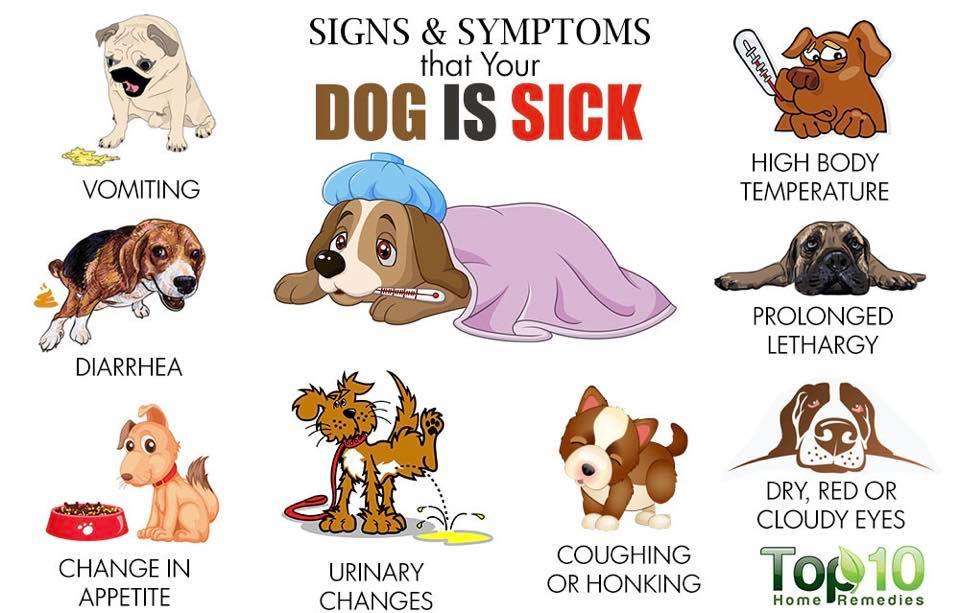Key Takeaways:
- Consult a veterinarian: Before giving any medication or home remedy to your dog with diarrhea, it is important to seek professional advice from a veterinarian.
- Fasting: In most cases of mild diarrhea, fasting your dog for 12-24 hours can help give their digestive system a break and allow it to recover.
- Hydration is essential: Make sure your dog has access to fresh water at all times to prevent dehydration, which can worsen the condition.
- Bland diet: Once the fasting period is over, gradually introduce a bland diet consisting of boiled chicken and rice to help firm up your dog's stool.
- Avoid certain foods: During the recovery period, it is crucial to avoid giving your dog fatty or spicy foods, dairy products, or anything that could further irritate their digestive system.
Are you a dog owner who wants to ensure your furry friend stays healthy and happy? If so, understanding what to give your dog if it has diarrhea is essential knowledge that can make a world of difference. Diarrhea in dogs can be uncomfortable for them and worrisome for you, but fear not! By delving into this topic, you'll discover simple yet effective remedies that can alleviate your dog's discomfort and bring back their wagging tail in no time. So, let's dive in and explore the best solutions for treating your dog's upset tummy!
Common Causes of Diarrhea in Dogs
When your dog has diarrhea, it can be a messy and uncomfortable situation for both of you. There are several common causes of diarrhea in dogs that you should be aware of. One possible cause is dietary indiscretion, which means your dog may have eaten something that upset their stomach. This could be anything from spoiled food to garbage or even a sudden change in their diet.
Another common cause of diarrhea in dogs is intestinal parasites. These tiny organisms can invade your dog's digestive system and cause irritation and inflammation, leading to loose stools. Some examples of intestinal parasites include worms like roundworms, hookworms, and whipworms.
Infections can also lead to diarrhea in dogs. Bacterial infections such as Salmonella or E.coli can cause gastrointestinal upset and diarrhea. Viral infections like parvovirus or distemper can also affect the digestive system and result in loose stools.
Dietary Indiscretion
Dietary indiscretion occurs when a dog eats something they shouldn't or experiences a sudden change in their diet. This can include scavenging through the trash, eating spoiled food, or consuming table scraps that are too rich for their stomachs. These actions can irritate the digestive system and lead to diarrhea.
Intestinal Parasites
Intestinal parasites are organisms that live inside your dog's intestines and feed off them. They can enter your dog's body through contaminated soil, infected animals, or ingesting parasite eggs from the environment. Once inside, these parasites can cause inflammation and irritation, resulting in diarrhea.
Infections
Bacterial and viral infections can also cause diarrhea in dogs. Bacterial infections like Salmonella or E.coli can be contracted through contaminated food or water. Viral infections such as parvovirus or distemper are highly contagious and can affect the gastrointestinal system, leading to diarrhea.
How to Help Your Dog with Diarrhea
If your dog is experiencing diarrhea, there are several steps you can take to help them feel better. First, it's important to make sure they have access to plenty of fresh water to prevent dehydration. You may also want to consider withholding food for a short period of time to give their digestive system a chance to rest.
Once your dog's diarrhea starts improving, you can gradually reintroduce small amounts of bland food into their diet. This can include boiled chicken and rice or a specialized prescription diet recommended by your veterinarian. It's best to avoid feeding your dog fatty or spicy foods during this time, as these can further irritate their stomach.
If your dog's diarrhea persists for more than 24 hours, or if they show other concerning symptoms such as vomiting or lethargy, it's important to consult with your veterinarian. They will be able to assess your dog's condition and provide appropriate treatment if necessary.
Hydration is Key
When dogs have diarrhea, they can lose a significant amount of fluids and become dehydrated quickly. It's crucial to ensure that your dog has access to clean and fresh water at all times. If you notice signs of dehydration such as dry gums or excessive panting, you may need to offer them electrolyte solutions specifically designed for dogs.
Bland Diet
A bland diet consisting of easily digestible foods can help soothe your dog's upset stomach. Boiled chicken and plain white rice are often recommended as they provide protein and carbohydrates without adding unnecessary stress on the digestive system. It's important to feed small, frequent meals to prevent overloading the stomach.
When to Consult a Veterinarian
If your dog's diarrhea persists for more than 24 hours or if they show other concerning symptoms such as vomiting, lethargy, or blood in their stool, it is crucial to consult with a veterinarian. These could be signs of a more serious underlying condition that requires medical attention. Your vet will be able to evaluate your dog's overall health and provide appropriate treatment.
Foods That Can Soothe Your Dog's Upset Stomach
When your dog has an upset stomach, it can be distressing for both you and your furry friend. Luckily, there are some foods that can help soothe their tummy troubles. One option is plain, cooked chicken or turkey without any seasoning. These lean meats are easy to digest and provide protein to support your dog's recovery. Another food that can be beneficial is plain white rice. Rice is gentle on the stomach and can help firm up loose stools.
Additionally, you may consider feeding your dog small amounts of canned pumpkin. Pumpkin is a great source of fiber and can aid in regulating your dog's digestive system. However, make sure to use plain canned pumpkin without any added sugars or spices. It's important to introduce these foods gradually and monitor your dog's response. If their symptoms worsen or persist, consult with a veterinarian for further guidance.
Recommended Foods:
- Plain, cooked chicken or turkey
- Plain white rice
- Canned pumpkin (plain)
Important Note:
Avoid feeding your dog fatty or spicy foods, as these can exacerbate their upset stomach. It's also crucial to keep them hydrated by providing fresh water at all times.
Safety of Over-the-Counter Medications for Dogs with Diarrhea
If your dog is experiencing diarrhea, you might wonder if over-the-counter medications could provide relief. However, it's essential to approach this cautiously as not all human medications are safe for dogs. Some over-the-counter options like Pepto-Bismol contain ingredients that may be harmful to dogs.
If you're considering giving medication to your dog, it's best to consult with a veterinarian first. They can recommend safe and appropriate medications based on your dog's specific condition. It's crucial to follow the veterinarian's instructions carefully and never exceed the recommended dosage.
Consulting a Veterinarian:
If your dog is experiencing diarrhea, it's always wise to consult a veterinarian before administering any medication. They can provide a proper diagnosis and prescribe suitable treatment options for your furry companion.
When to Consult a Veterinarian for Persistent Dog Diarrhea
While occasional episodes of diarrhea in dogs are common and often resolve on their own, persistent or severe diarrhea may require veterinary attention. If your dog's diarrhea lasts for more than 24 hours, if they show signs of dehydration (such as excessive thirst or dry gums), or if there is blood in their stool, it's crucial to consult a veterinarian promptly.
A veterinarian will be able to assess the underlying cause of the persistent diarrhea and recommend appropriate treatment. They may perform tests such as fecal examinations or blood work to identify any potential infections or underlying health conditions contributing to the symptoms.
Signs Indicating Veterinary Attention:
- Persistent diarrhea lasting more than 24 hours
- Signs of dehydration (excessive thirst, dry gums)
- Blood in stool
Preventing Dog Diarrhea: Diet and Lifestyle Changes
Prevention is always better than cure when it comes to dog diarrhea. By making some diet and lifestyle changes, you can help reduce the chances of your furry friend experiencing an upset stomach.
One important aspect is maintaining a consistent and balanced diet for your dog. Avoid sudden changes in their food, as this can disrupt their digestive system. Instead, gradually transition them to new foods over a week or so. Additionally, ensure that your dog is not consuming any toxic substances or eating things they shouldn't, such as garbage or plants.
Regular exercise is also crucial for your dog's overall health and digestion. Engage in daily walks or play sessions to keep them active and help regulate their bowel movements. Lastly, providing fresh and clean water at all times is essential to prevent dehydration and aid in digestion.
Tips for Preventing Dog Diarrhea:
- Maintain a consistent and balanced diet
- Gradually transition to new foods
- Avoid toxic substances or inappropriate eating habits
- Ensure regular exercise for your dog
- Provide fresh and clean water at all times
In conclusion, if your dog has diarrhea, it is important to give them a bland diet consisting of boiled chicken and rice. It is also crucial to provide them with plenty of water and monitor their condition closely.
What stops diarrhea quickly in dogs?
According to Miller, if your cat or dog is experiencing mild diarrhea, you can treat it at home by feeding them a bland diet consisting of boiled chicken or low-fat hamburger, along with white rice or cooked pasta. These foods are gentle on their digestive system and give their gastrointestinal tract a rest.
Why is my dog pooping liquid poop?
Causes of illness in dogs include consuming spoiled or contaminated food, ingesting foreign objects like toys or fabric, consuming toxins or poisons, and contracting viral infections like parvovirus, distemper, or coronavirus.
What do vets give dogs for diarrhea?
"Medications such as anti-diarrheal agents, de-wormers, and probiotics (beneficial bacteria for the gut) may be recommended and prescribed. There are various probiotic products available that can be beneficial for dogs experiencing diarrhea."
Can I give my dog Pepto Bismol for diarrhea?
It is not recommended to use Pepto Bismol for treating diarrhea in dogs. It is important to consult a veterinarian for accurate diagnosis and appropriate treatment options.
Is there a home remedy I can give my dog for diarrhea?
For a natural solution to relieve your dog's diarrhea, consider giving them a small portion of pureed pumpkin, ranging from one to three tablespoons depending on their size. Be sure to use 100% pure pumpkin without any added sugar or other ingredients that could potentially worsen their stomach upset.
How can I firm up my dogs poop and diarrhea?
To improve your dog's bowel movements, it is recommended to reduce the intake of fatty foods and instead focus on consuming milder and less flavorful foods. Replace fatty red meats with fish, chicken, and turkey. Results may not immediately appear, so it is important to continue with this mild diet until significant improvements are observed.

















